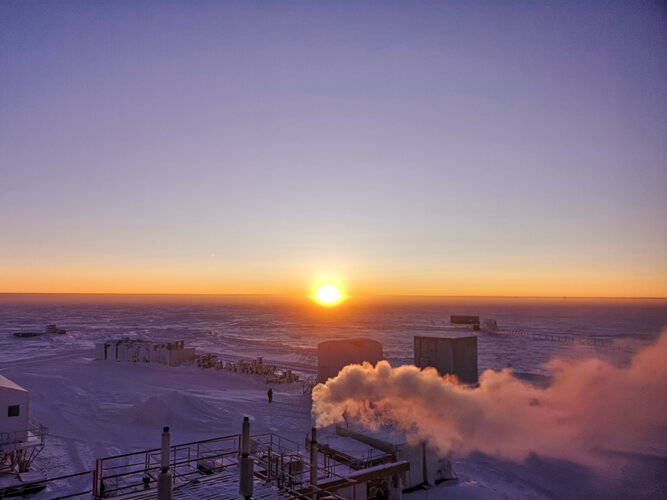After four months of darkness, it is finally time to rise and shine for the crew at Concordia Research Station in Antarctica. The most-welcome Sun finally made its appearance on 11 August and ESA-sponsored medical doctor Nick Smith was not about to miss it.
For nine months Nick and his fellow crew mates have been living and working in one of the most isolated, confined and extreme environments on Earth, with no way in or out of the Station during the winter-over period.
Nick is overseeing experiments in human physiology and biology, atmospheric physics, meteorology, and astronomy, among other disciplines. Along with the rest of the crew, he is also maintaining the base – one of only three to run year-round in the Antarctic.
Four months of complete darkness is quite the challenge, and one researchers are very interested in studying from a physiological and psychological point of view. From questionnaires to blood and stool samples, the crew are poked and prodded to understand how better to prepare humans for deep space travel.
Social dynamics are also of interest to researchers during the period of darkness. Stress brought on by lack of sunlight, changing sleep patterns, fatigue and moodiness can affect the group. The crew are especially encouraged to take on group activities and get creative to combat the isolation of the winter. And not just with their own station crew.
Bases across Antarctica take part in the annual Antarctic Film Festival. Crews from each base submit an entry for different categories, and the creativity and cooperation required to come up with an idea and script, film and edit the entry makes for friendly competition and camaraderie. Look out for 2021 entries here.
The first sunrise is always a remarkable moment, signalling the home stretch of their Antarctic residency. From now on the winter crew will start preparing for summer and the return of scientists that arrive for the warmer months starting in November. The base is cleaned thoroughly, machinery is serviced, tents are erected and heated, and the runway is cleared of snow. Extensive work is required to welcome the new arrivals back to the base at the end of the world.
Follow the adventures in science and socialisation at Concordia on the blog.



 Image:
Image: